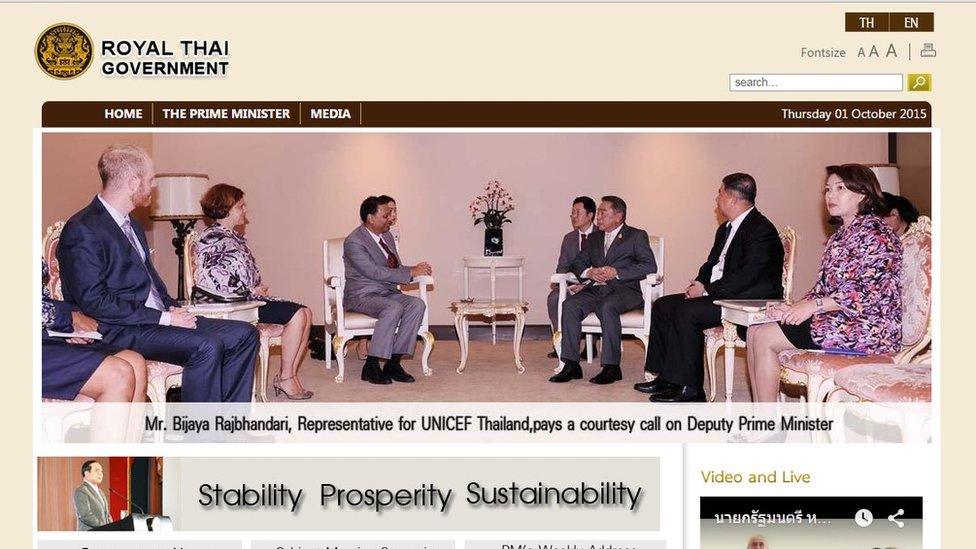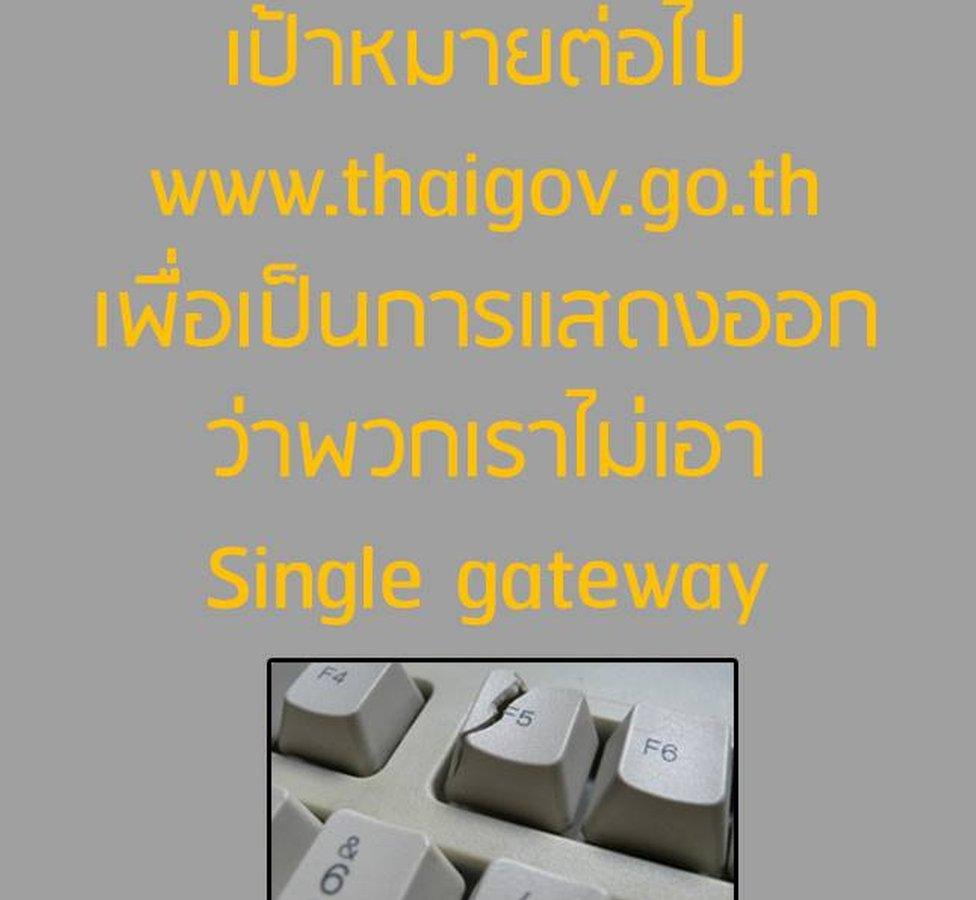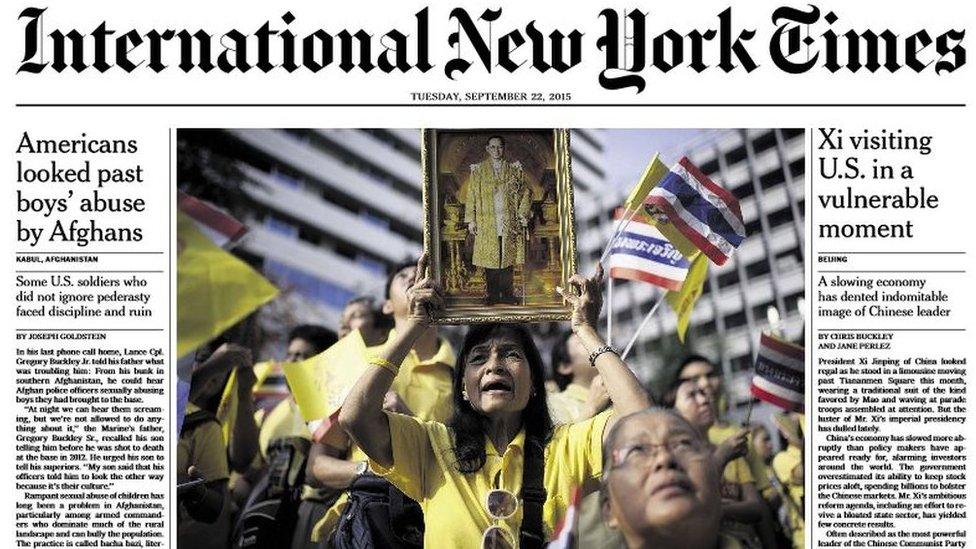Thai government websites hit by denial-of-service attack
- Published

The prime minister's website was also targeted but was accessible again by Thursday
Several Thai government websites have been hit by a suspected distributed-denial-of-service (DDoS) attack, making them impossible to access.
The sites went offline at 22:00 local time (15:00 GMT) on Wednesday. Access was restored by Thursday morning.
It appeared to be a protest against the government's plan to limit access to sites deemed inappropriate.
Tens of thousands of people have signed a petition against the proposal they call the "Great Firewall of Thailand".
The name is a reference to the so-called "Great Firewall of China" commonly used to refer to the Chinese government's censorship over internet content.
'Inappropriate websites'
A DDoS attack works by exceeding a website's capacity to handle internet traffic. They are usually orchestrated by a program or bot.
But on Wednesday, calls went out on social media in Thailand encouraging people to visit the websites and repeatedly refresh them.

One of the posts that appeared on social media: “Next target, www.thaigov.go.th to show our opposition to the single gateway"
Among the targets were the site of the ministry of information, communications and technology (ICT) and the main government website thaigov.go.th, external.
ICT Deputy Permanent Secretary Somsak Khaosuwan said the site did not crash because of an attack but because it was overloaded by visitors checking to see whether and attack was happening, the Bangkok Post reports.
'Single gateway'
Since seizing power, the Thai military government has increased censorship, blocked websites and criminally charged critics for comments made online.
News it was planning to set up a single government-controlled gateway as a "tool to control inappropriate websites and information flows from other countries" emerged last month.
Internet gateways are the point at which countries connect to the world wide web.

Analysis: Jonathan Head, BBC News, Bangkok
What are Thais angry about?
The cabinet had ordered a single gateway to be imposed in order to block "inappropriate websites" and control the flow of information from overseas. That the decision, made at a cabinet meeting on 30 June, was kept secret has caused more alarm.
Why does the government want a single gateway?
A statement by Minister for Information Uttama Savanayana that the decision was not yet final, and that the single gateway was only intended to reduce the cost of internet access. This was met with disbelief by many Thais, and then the shutdown of government websites.
Will the DDoS have any impact?
Thai netizens insist this is not an attack, but a form of civil disobedience. The military may still push ahead with its firewall, whatever the opposition. The need for control, as it confronts the task of managing a sensitive royal succession, will probably trump any concerns it may have for the digital economy.

Thailand used to have just a single gateway but slow internet speeds led to the liberalisation of the industry and today there are 10, operated by private and state-owned companies.
The apparent attack renewed the vibrant debate over the single gateway plan on social media, with many users declaring the end of privacy.
"Thailand is developing. Thailand is developing into North Korea," one Twitter user said.
"I personally & professionally support free flow of information & fair competition on ICTs," said Supinya Klangnarong from the National Broadcasting and Telecommunication Commissions (NBTC) on Facebook.
"Hope NBTC's website won't be attacked tonight. An open debate is definitely better than a cyber warfare. Voices of reason shall be heard."
- Published22 September 2015
